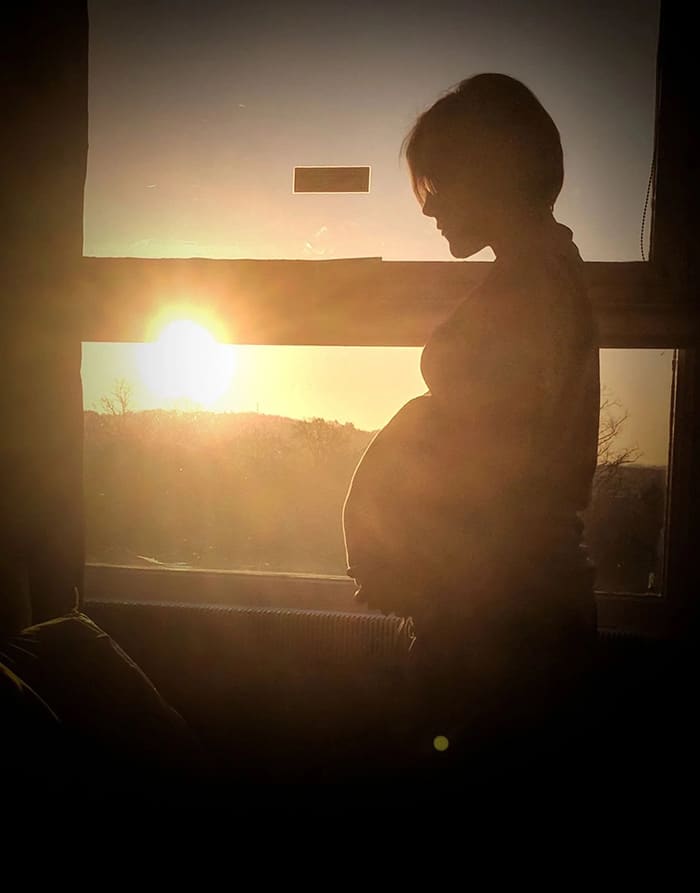

You know the phrase, prevention is better than a cure? That is true in a lot of scenarios, but ESPECIALLY sleep.
One thing that continually frustrates me is the constant emphasis on antenatal breastfeeding education as being the gold standard of antenatal classes. And although it is super important that women know what to do, how and what to expect (don’t get me wrong, I’m a massive advocate of breastfeeding), a baby WILL ALWAYS end up eating. Whether from boob or bottle. Do you know what a baby won’t naturally do unless aided? SLEEP!
Therefore it makes sense to conclude that antenatal sleep education should be just as important as methods of feeding.
There is a few issues with this.
1) So little is known about infant sleep that new parents wouldn’t even consider it a need until they were in the throes of sleep deprivation at which point, the only response is the ‘cure’.
2) There are very few midwives/health visitors who thoroughly understand sleep and know how to advise appropriately.
It seems to be considered ‘normal’ for young babies to sleep badly throughout the day and then wake frequently at night. There are of course those who embrace this, but for those who need their sleep, their ability to function starts to unravel and normally by the time they hit seven months after giving birth, they are at their wits’ end! That’s why the highest rate of postnatal depression is between the 9-12 month mark!
This is what I want to change. I am on a journey to educate as many people as I can, both healthcare professionals and parents, about the importance of infant sleep, and I believe that as a profession, both midwives and health visitors especially should be taught about sleep during their training so we can offer true, informative advice.
Let me start with a scenario:
Bessie is five months old. She is exclusively breastfed and she feeds every two hours. She falls asleep in her mother’s arms only to wake after 35-45 minutes during the day. By evening she is inconsolable and after a lot of ‘cluster feeding’ she eventually falls asleep. Once asleep, however, she wakes frequently and is fed back to sleep and wakes at around 5 am. Both Mum and Bessie are now exhausted, but every time Mum asks anyone for help, she gets patted on the back and told “It’s normal”, or “Enjoy it whilst you can, it won’t last forever!” Not particularly helpful to a sleep-deprived mum.
I’m sure this scenario is readily recognisable for many of you and you very well may think, well yes, that is normal! But in truth, it is only ‘normal’ in so far that it is common. This is not actually how a baby should sleep, and bad sleep can cause problems for everyone, whatever their stage in life.
How does poor sleep affect us?
Matthew Walker, the scientist and author of “Why we sleep” explains how just one night of poor sleep can affect adult brains in the following ways:
✖️Memory is impaired.
✖️There is an increased production of the toxin protein beta amyloid, which is then not eliminated during deep sleep.
✖️Reproductive systems are affected – men have lower testosterone.
✖️Immune systems are dramatically affected – after just one night of 4-5 hours of sleep you have a 70% reduction of immune cells. After just ONE night!
✖️Cardiovascular systems are impaired – it is during deep sleep that your heart rate and blood pressure go down and your whole cardiovascular system is rebooted. The risk of heart attacks and strokes rises by up to twice as much.
✖️Declines in brain function and body impairments after 16 hours of wakefulness. That’s a “normal” day if you wake at 7am and go to bed at 11pm. After 19 or 20 hours awake, you would be at the same level of impairment as someone who was legally drunk behind the wheel of a car. We then need about eight hours of sleep, after 16 hours of wakefulness, to repair this damage.
“Wakefulness is, essentially, low-level brain damage” according to Matthew Walker.
This is what happens to an adult brain, and yet imagine what it does to a developing brain that is having to digest, absorb and learn EVERYTHING from scratch!
So many parents believe that babies will ‘sleep when they want’. A common misconception that not only have I heard time and again, I actually believed with my first!
It was my elder sister who’s second baby was only 5 weeks older than my first who told me that they had ‘awake times’. That after these awake times, they would get overtired and then they would go mental and you actually had to actively help them to fall asleep.
That was life changing for me. It opened up this whole new area of life through the eyes of these tiny humans that just wanted to sleep but weren’t being given the opportunity. Poor things.
You know that feeling when you’re watching an episode on netflix and you become aware that you’re tired and you should go to sleep, but instead, you just keep watching and then eventually drag yourself to bed? Babies do a very similar thing.
Humans are some of the very few creatures on earth that forgo sleep. We will actively try and not sleep if we think we can get something else out of it. Whether that’s more TV, cuddles or boobs! And as babies are constantly being stimulated by EVERYTHING they see, life is like a TV show for them and they just don’t want to close their eyes.
Knowing that babies need to be actively put down to sleep, knowing what their awake times are and understanding how overtiredness can negatively affect them, means that parents would be prepared and know what to look for.
In terms of the midwives and health visitors, it is essential to understand all the aspects of infant care in order to give appropriate advice and we as midwives and health care professionals are falling short in this area of sleep education. And it’s the parents and the babies in our care that are suffering.
This has got to change and I am here to change it. I will let you all know in due course but I am one woman on a mission! I am creating a course for parents and healthcare professionals and I WILL change the attitude to infant sleep but I need your help. So please like and share this so as many #newparents and #parentstobe as possible can see that there is another option aside from just waiting for the sleep deprivation to hit.